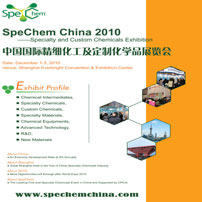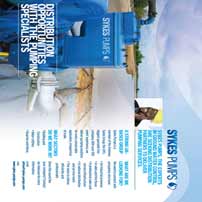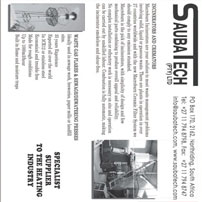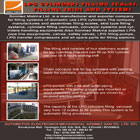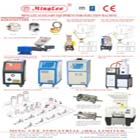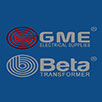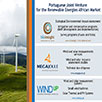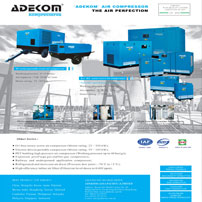

M a r k e t N e w s
Tanzania: Solar Power Now Reigns Supreme in Rural Areas
Posted on : Wednesday , 19th July 2017
Solar power revolution is happening in Tanzania with a new study indicating that more than half (65 per cent) of rural households that have access to electricity use solar.
The Energy Access Situation Report 2016 released earlier this week by the National Bureau of Statistics and the Rural Energy Agency shows that grid electricity is the second largest source of power in rural areas with 34.5 per cent of households connected.
"The results show that solar power is the dominant electricity source in rural areas as 64.8 per cent of the rural households were using electricity generated from solar power. Private entity and individual electricity generated from own sources (excluding solar) was the least source of electricity among rural households at 0.6 per cent," part of the report reads.
Generally, electricity access (to any form of electricity) in rural areas has improved from 6.1 per cent in 2011 to 16.9 per cent in 2016, the Energy Access Situation Report shows. This means that 83.1 per cent of households in rural areas remain without access to any form of electricity despite the huge potential of solar power in electrifying rural areas.
"One general observation from this data is that more efforts are needed to improve the accessibility of modern energies to rural residents in order to achieve sets of energy targets by 2030 as stipulated in 2015 Energy Policy," the report says.
It also shows that generally 24.7 per cent of the households with access to electricity in Tanzania use solar energy as a source of power. In urban areas, only about 3.4 per cent of the households use solar power as the only source of power.
"Disparities on sources of energy were significant between rural and urban residents. Households connected to grid electricity were lower (34.5 per cent) in rural than in urban areas (96.4 per cent), while the number of households connected to solar power was higher (64.8 per cent) in rural than in urban areas (3.4 per cent)," the report says.
The distribution of solar power connectivity shows that regions in Mainland Tanzania have adopted the use of solar in varying degrees. Solar power electricity was significant in Lindi (75.5 per cent), Njombe (63.4 per cent), Mtwara (61.1 per cent), Katavi (57.6 per cent) and Ruvuma (54.7 per cent).
But the same report also shows that despite Shinyanga Region having the third lowest connectivity for all types of electricity in the country (12.8 per cent), still all its rural households were connected to solar power (100 per cent), followed by Mtwara (98.6 per cent), Katavi (92.2 per cent), Ruvuma (89.4 per cent) and Njombe (87.8 per cent).
Obviously Dar es Salaam had the lowest number of all households (both rural and urban) connected to solar power (0.7 per cent), followed by Rukwa (8.8 per cent), Kilimanjaro (11.4 per cent) and Kigoma (15.9 per cent). Meanwhile, electricity generated through private individual sources such as generators (excluding solar) has been a source that few Tanzanian households, especially in rural areas, depend.
Songwe Region had the largest number of rural households using generators (5.6 per cent), followed by Katavi (2.2 per cent), Kagera and Dodoma (1.8 per cent each) and Tanga (1.7 per cent).
The study found out that 90.7 per cent of households had LUKU connected to their electricity connections, while less than 10 per cent were using meters.
"The proportion of households, who have been using meters, has been declining. While by 2000, 17.3 per cent were connected to meters, in 2016 the proportion declined to less than five per cent (4.5 per cent) of such household," the report shows.
Source : http://allafrica.com










